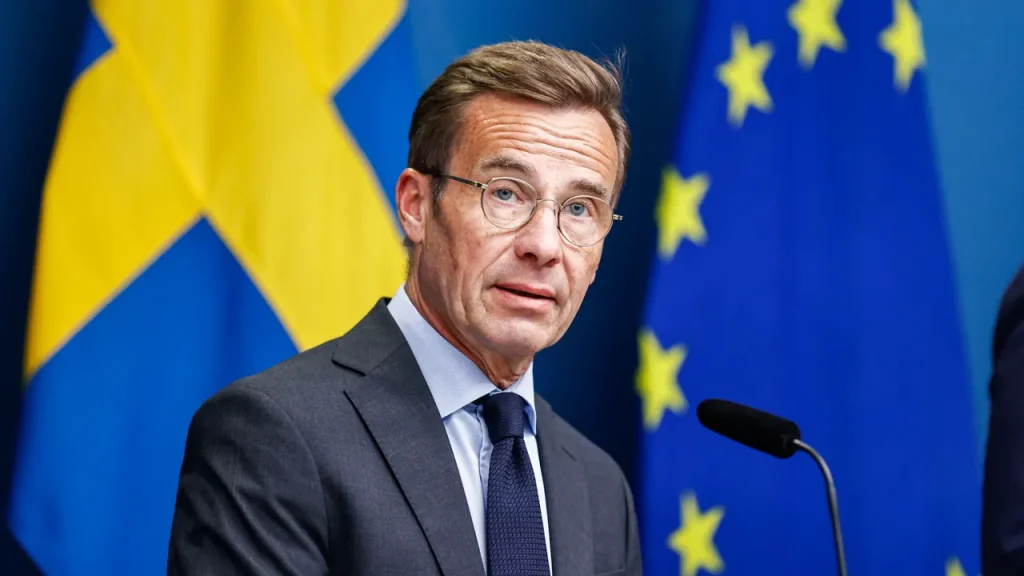Swedish Court Decision Sparks Outrage Over Deportation Laws
In a controversial ruling that has ignited national debate, a Swedish appeals court recently decided not to deport an Eritrean national convicted of raping a 16-year-old girl, determining that the assault was not “exceptionally grave” enough to warrant expulsion from the country. The Court of Appeal for northern Norrland sentenced Yezied Mohamed, an undocumented immigrant, to three years in prison—the minimum sentence for rape in Sweden—and ordered him to pay approximately $25,600 in damages to the victim from Skellefteå. While acknowledging the seriousness of the crime, the court concluded that factors such as the “nature and duration” of the assault did not meet the threshold required for deportation under current Swedish law. Judge Lars Viktorsson explained that the court considered multiple aspects, including the absence of a weapon, lack of intercourse, and the “short duration” of the incident. This reasoning particularly fueled public outrage, with the duration element becoming a flashpoint in the ensuing national conversation about justice, immigration, and victim protection.
The ruling prompted an immediate and forceful response from Sweden’s political leadership, with Prime Minister Ulf Kristersson releasing a video condemning the decision and pledging significant reforms to deportation laws. “No one should have to worry about meeting their attacker or rapist on the street,” Kristersson stated, emphasizing that “those who commit serious crimes in Sweden and are not Swedish citizens must leave the country.” His government has promised to introduce “the toughest legislation in all the Nordic countries,” proposing that any crime resulting in more than a fine could potentially lead to deportation. Migration Minister Johan Forssell similarly expressed outrage, stating that “the victim’s right to safety must always outweigh the perpetrator’s right to stay in Sweden” and promising new legislation in the coming year that would make Sweden’s deportation policies the strictest among its Nordic neighbors. Both officials’ statements reflect a significant shift in Sweden’s approach to criminal deportation, with Kristersson predicting that the proposed changes would increase deportations sixfold.
The case’s procedural history reveals additional complexities that have further inflamed public sentiment. Initially, a District Court acquitted Mohamed, acknowledging that a rape had occurred but finding insufficient evidence to conclusively identify him as the perpetrator. However, the Court of Appeal overturned this decision after determining that Mohamed matched the description provided by both the victim and a witness, with forensic evidence placing him near the crime scene. Despite this conviction, the court’s decision against deportation hinged on refugee protections and its assessment that the crime, while serious, did not cross the threshold of “exceptionally grave nature” required by current law. Notably, the ruling was not unanimous, with one judge dissenting and arguing that Mohamed should be expelled from the country—a detail that has further fueled criticism of the majority decision as potentially arbitrary or overly lenient.
The case gained international attention after social media posts claimed Mohamed avoided deportation specifically because the rape “lasted less than ten minutes.” While the court’s published judgment does not specify any exact timeframe, Judge Viktorsson confirmed that duration was indeed considered in the assessment, alongside the nature of the offense. Swedish journalist Christian Peterson explained to Fox News Digital that the court’s reference to the “character and duration” of the act became “a flashpoint for public anger,” as it suggested judges were making subjective determinations about which aspects of sexual violence were sufficiently severe to warrant deportation. This framing has sparked outrage among victims’ advocates and those concerned about judicial discretion in sexual violence cases. A viral post by Swedish commentator Evelina Hahne, which garnered nearly 10 million views and was shared by Elon Musk, accused Swedish courts of systematic leniency toward migrants who commit crimes, amplifying the debate over immigration, criminal justice, and national security.
According to Peterson, this case highlights a broader issue that has been simmering in Swedish society: the perceived difficulty in deporting migrants even after serious criminal convictions. “In Sweden it’s very difficult to deport migrants, even those convicted of serious crimes,” Peterson noted, explaining that this particular case has become “symbolic because people feel it shows how the system protects offenders more than victims.” He referenced similar controversial cases, including the 2016 murder of Elin Krantz by an Ethiopian man with a residence permit, and recent reports of sexual assaults in elderly care homes involving foreign-born workers. Peterson suggested that meaningful reforms to address these concerns only began to materialize after a right-wing coalition took power in 2022, as the issue had previously been considered “too politically sensitive” for substantive action. He also noted that Sweden declined to join Denmark, Italy, and Austria in a European Union initiative to reform the European Convention on Human Rights, which critics argue limits countries’ abilities to deport convicted offenders regardless of the severity of their crimes.
As public anger continues to mount, Sweden’s government faces increasing pressure to implement tougher deportation policies and strengthen protections for victims of violent crime. Judge Viktorsson emphasized to Fox News Digital that while the court simply followed existing law and precedent in this case, “the power to change deportation standards lies with lawmakers.” This acknowledgment underscores the fundamental tension at the heart of the controversy: the balance between judicial independence and political responsiveness to public concerns about safety and justice. The case has become a catalyst for broader discussions about Sweden’s immigration policies, criminal justice system, and international obligations, particularly regarding refugee protections and human rights conventions. With the government now promising sweeping reforms, the incident marks what appears to be a significant inflection point in Sweden’s approach to crime and immigration—one that will likely have far-reaching implications for both policy and public sentiment in the years ahead.













